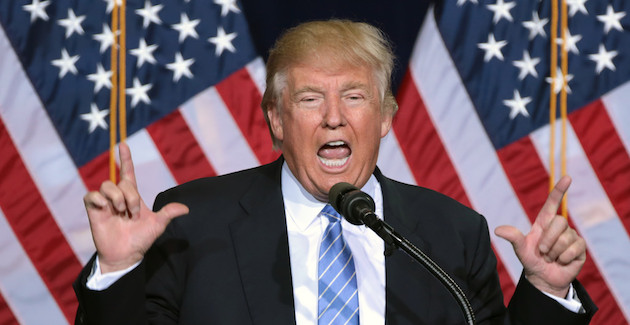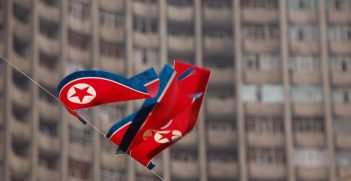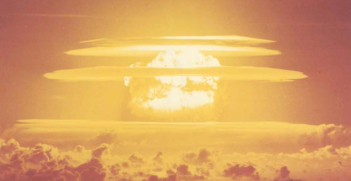New Crisis of Confidence in US Leadership

Almost seven months into Donald Trump’s presidency, the president is losing “bigly” on the world stage. According to polling by the Pew Research Centre, belief in the US’ ability to lead in world affairs is at an all-time low.
American influence around the world is, in part, a product of public perception of the United States, its leadership, its soft power and its policies. Moreover, US stature can be measured by how views of America compare with sentiment about other major powers, especially China.
In 2017, global audiences are harsh critics of US President Donald Trump, view the US much less favorably and see the balance of economic supremacy shifting toward China, according to a new Pew Research Center survey spanning 38 countries. And this is particularly the case in Australia, a long-time alliance partner of America. Nevertheless, Australians think that relations with the United States will stay about the same over the next few years.
Today, a median worldwide of 22 per cent has confidence in President Donald Trump to do the right thing in world affairs. This stands in sharp contrast to the final years of Barack Obama’s presidency, when a median of 64 per cent expressed confidence in Trump’s predecessor.
Just 29 per cent of Australians have confidence in Trump. In 2016, 84 per cent expressed confidence in Obama. As a further point of reference, in 2008 23 per cent of Australians voiced confidence in then-President George W. Bush. So Australians’ evaluation of the US president is back to about where it was at the end of the Bush administration. But that critical judgement took years to develop, whereas Trump has been in office for less than a year.
Australians join others around the world criticising a number of signature Trump policy proposals. Roughly three-quarters (77 per cent) of Australians disapprove of the president’s plans to withdraw support for international climate change agreements. More than seven-in-ten (73 per cent) disapprove of his intent to withdraw from trade agreements, such as the Trans-Pacific Partnership, that include Australia as a member.
Moreover, despite their own history of frequently electing brash and unconventional politicians, Australians don’t like Trump’s personality. They find him arrogant (89 per cent), intolerant (77 per cent) and dangerous (71 per cent). And only 22 per cent believe he is well-qualified to be president.
In addition to their views of President Trump, Australians are now divided about the United States: 48 per cent see it favorably, 48 per cent unfavorably. This is comparable to the global median of 49 per cent who are favourably inclined toward America. Looking back, however, 60 per cent of Australians expressed a favorable view of the US at the end of the Obama presidency, while 46 per cent judged Uncle Sam favorably at the end of the Bush term in office.
Among major nations, Australians are not alone in their view of President Trump and the nation that elected him. Just 11 per cent of Germans, 22 per cent of the British, 23 per cent of Indonesians and 24 per cent of Japanese have confidence in Trump. And support for the US is down 22 percentage points in Germany, 15 points in Japan, 14 points in Indonesia and 11 points in the UK.
In the balance of power equation with China, as Australians’ views about the US have suffered, their opinion of China has improved. Today 64 per cent see China favorably, up from 52 per cent in 2016. And 75 per cent of the next generation, those aged 18 to 29, see China in a positive light, compared with only 51 per cent of that same age group who see the US favourably.
Globally the US is still seen as the leading economic power, but China is gaining ground. Australians already say China (58 per cent) is the economic hegemon rather than the US (29 per cent). And Australians have held this view for some time. But in their judgment, Australians are notably out of step with others in the Asia-Pacific region. Majorities of South Koreans (66 per cent), Japanese (62 per cent) and pluralities of Filipinos (49 per cent), Indians (42 per cent) and Indonesians (39 per cent) pick the US.
Finally, US soft power is an element of American influence, in Australia and elsewhere. But its appeal depends on which soft power is in question. Australians (80 per cent) and almost everyone else around the world like American movies, music and television. But just 43 per cent of Aussies like US ideas about democracy. And only 33 per cent support the spread of US ideas and customs in Australia. In such views, Australians are largely in sync with sceptical sentiment around the world.
But at the end of the day, despite their wariness of the new US president and his policies, 51 per cent of Australians believe that relations with Washington will remain about the same in the years ahead. Just 40 per cent fear things will get worse and only 7 per cent expect things to get better. Australian worries about future relations with the US are roughly comparable to sentiment in the region: 38 per cent of Indonesians, 41 per cent of Japanese and 43 per cent of South Koreans expect ties to worsen.
The US image has weathered storms in the past in Australia and around the world. Support for the United States and confidence in the American president eroded during the Bush administration only to rebound sharply during the Obama era. But past is not always prologue. Since Pew began monitoring the US image overseas in 2002, this rapid decline in US stature is unprecedented and bears watching.
Bruce Stokes is director of global economic attitudes at the Pew Research Center.
This article is published under a Creative Commons Licence and may be republished with attribution.





